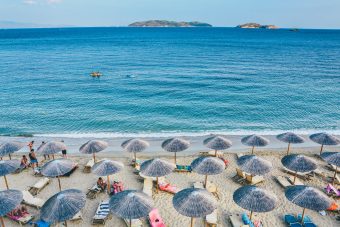
Prior to the COVID-19 pandemic, the Eastern Caribbean island nation, famed for its beautiful landscapes, pristine white-sand beaches and temperate climate, attracted around a million tourists each year.
But with travel restrictions across the globe, tourism all but dried up, and the country’s economy has seen a dramatic downturn. It is estimated that, by the end of 2020, GDP had contracted by 18 percent, primarily due to a 71 percent decline in long-stay arrivals over the year.
In these times of instability, the Barbadian government is accelerating its efforts to diversify the economy and rebuild a more sustainable and resilient one. Apart from renewed activity in traditional sectors, the country aims to tap into the new value chains of the emerging global green and blue economy.
Barbados not only has ambitious plans to become the first carbon-free small island developing state by 2030, but also intends to become an export leader of cleantech products and services to the Caribbean and beyond.
More:
In this context, the United Nations Industrial Development Organization (UNIDO), with funding from the Global Environment Facility (GEF), is supporting the Government of Barbados with the establishment of BLOOM, the Caribbean’s first cleantech cluster.
Created as public-private partnership, the cluster provides shared resources and services, as well as a makerspace for companies and academia to work on joint projects, solutions and marketing. The cluster is hosted by the Barbados Investment and Development Corporation (BIDC), under the supervision of the Ministry of International Business and Industry.
The cluster’s sustainable, responsible and impactful approach to export development embraces the United Nation’s Sustainable Development Goals (SDGs) as a bedrock for developing Barbadian businesses.
Jari Aaltonen, manager of BLOOM, explains, “The BLOOM cleantech cluster is still a relatively new player in Barbados’ innovation ecosystem as it was launched in 2020 in the midst of a deep economic crisis. As of now, the cluster has 20 members including start-ups, government agencies, chambers and universities.”
The cluster has engaged young cleantech entrepreneurs from the University of West Indies for the incubation programme, offering them high-quality training, individual coaching and mentoring provided by local experts and partly by international training institutions like Coursera and the International Labour Organization. “This combination is the key for accelerated learning,” Aaltonen says.
You can read the whole article HERE.
Source: UNIDO



